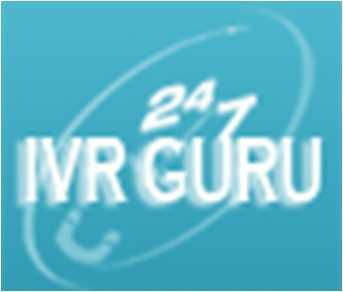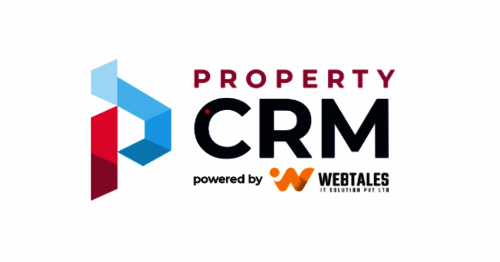Yes, most real estate CRM software can be accessed from a variety of devices and platforms, including desktop computers, laptops, tablets and smartphones. Users may now access their data and tools from anywhere, allowing them to stay connected and productive while on the go. It also guarantees that all team members are on the same page and can work effortlessly, regardless of the device or platform they use.
List of 20 Best Real Estate CRM Software
PropFlo - the top-notch Real Estate CRM+ software that revolutionizes customer management. Its advanced technology streamlines lead interactions, automates sales and marketing tasks, and fosters transparent communication with buyers. Offering a secur...Read More PropFlo
AutonomousERP the CRM software built for real estate developers. Our state-of-the-art technology solutions have helped numerous clients excel in their performance and achieve success. Discover the capabilities of our award-winning software and take y...Read More AutonomousERP
Realty Space is a top-notch CRM software designed for real estate experts. Our revolutionary platform caters to the unique requirements of agents and offices, simplifying day-to-day tasks, automating processes, and enhancing client interactions. Feat...Read More Realty Space
RealX.pro is a real estate management software that revolutionizes property management with its user-friendly interface and advanced analytics. Unlock the potential of your property listings and enhance client interactions while gaining valuable mark...Read More RealX.pro
Top Producer is a real estate CRM designed to keep you in control of your business. With customized follow-ups, lead alerts, and referral creation, youll always stay one step ahead. Whether youre on your mobile device or at your desk, this user-frien...Read More Top Producer
Fortuna is a free real estate CRM designed for Australia and the USA. This innovative tool features grid views for effortless organization, searching, and comparing with clients through Email, SMS, and Merged Letters. Experience seamless navigation w...Read More Fortuna
Real Estate Cloud, the premier CRM solution for private agents. Revolutionize your real estate business with this software, packed with an array of features to simplify deal-making. Effortlessly integrate different modules with our user-friendly inte...Read More Real Estate Cloud
Zurple Real Estate Software is a solution tailored to the specific needs of the real estate industry. It boasts advanced features such as lead tracking, timely lead contact, and complete lead management. With its seamless infrastructure and end-to-en...Read More Zurple
Realeflow is a Real Estate CRM platform designed to cater to the needs of Enterprises, SMEs, and Startups. Its user-friendly interface offers a wide range of features including Calendar and Campaign Management, Contact and Lead Management, Email Mark...Read More Realeflow
Experience an unparalleled level of efficiency with OPAZA is a real estate management solution. Our comprehensive platform streamlines all crucial operations, from sales and marketing to financial transactions, ensuring smooth operations for your bus...Read More OPAZA
KnockWise revolutionizes real estate door-knocking with its cutting-edge application. Providing agents with up-to-date homeowner and market insights, this tool streamlines follow-ups and improves performance tracking. Stay ahead of the competition an...Read More KnockWise
Apimo is a real estate platform designed to streamline your workflow. With its user-friendly interface, mobile-focused websites, and powerful marketing tools, Apimo empowers agents to thrive in a dynamic market. Experience hassle-free property manage...Read More Apimo
HomeBuy360 is the revolutionary online platform that provides unparalleled access to your property. With HomeBuy360, you can easily track progress, view crucial documents, monitor payments, and track customizations – all in a single location...Read More HomeBuy360
BrokerSumo is a software solution tailored for real estate brokerages. Its advanced tools and intuitive interface make commission tracking, agent management, and financial reporting effortless tasks. With reliable support and optimized efficiency, Br...Read More BrokerSumo
IVR GURU is a Cloud telephony solution that empowers businesses to succeed. Our innovative services are tailored to elevate your business potential and give you the assurance to excel. With our affordable yet robust features, increase your reach and...Read More IVR GURU
PropertyCRM by Webtales - the leading CRM software built specifically for Real Estate professionals. Featuring a SEO-optimized website, it provides a comprehensive solution for managing property listings, sales tracking, and invoicing. Simplify and e...Read More PropertyCRM by Webtales
KreativeHive 360 solution for boosting your brand to new heights of success. Blending strategy and skill, our team delivers unparalleled results, ensuring maximum return on investment for your business. With unwavering dedication and a meticulous app...Read More KreativeHive 360
REsimpli is a solution for real estate investors. Our all-in-one CRM software streamlines your data management, marketing, sales processes, and operations. From list stacking and skip tracing to drip campaigns and direct mail, REsimpli equips you wit...Read More REsimpli
Bhoomi is a software for streamlined data processing and improved decision-making. With its advanced features, Bhoomi optimizes manpower usage and reduces overhead costs, making it the perfect solution for various industries from construction to inve...Read More Bhoomi
Vtiger One is a cloud-based CRM solution tailored for small and medium-sized businesses. Our versatile platform includes Sales, Help desk, Marketing, Projects, and Inventory features, all seamlessly integrated with our cutting-edge customer One View...Read More Vtiger CRM
Learn More About Real Estate CRM Software
- What Is Real Estate CRM Software?
- What Are The Recent Trends In Real Estate CRM Software?
- Benefits Of Using Real Estate CRM Software
- Important Factors To Consider While Purchasing Real Estate CRM Software?
- What Are The Key Features To Look For In Real Estate CRM Software?
- Why Do Businesses Need Real Estate CRM Software?
- How Much Time Is Required To Implement Real Estate CRM Software?
- What Is The Level Of Customization Available In Real Estate CRM Software?
- Which Industries Can Benefit The Most From Real Estate CRM Software?
- Conclusion
What Is Real Estate CRM Software?
Real Estate CRM software, also known as Customer Relationship Management software, is a powerful tool designed to help real estate professionals manage and streamline their sales and marketing processes. It serves as a primary hub for storing, organizing, and analyzing all customer, property, and lead data.
At its foundation, a Real Estate CRM is a database that allows agents and brokers to manage client interactions while also maintaining extensive property descriptions and records. This contains contact information, preferences, previous encounters, and any other pertinent information. One of the primary advantages of adopting a Real Estate CRM is its ability to automate and streamline a variety of processes.
This covers lead management, email marketing, task scheduling, and more. By automating these processes, agents may save time and focus on more vital tasks like networking and closing business. In addition to efficiency, Real Estate CRM software provides agents with important insights and analytics to assist them make better decisions.
With extensive reporting features and data visualization tools, agents may acquire a better insight of their market, track campaign success, and discover areas for improvement. Furthermore, Real Estate CRM software is highly configurable and can be adjusted to meet the unique demands and workflows of various real estate organizations. This makes it a versatile tool that can be tailored to the specific sales and marketing strategies of particular agents and agencies.
Overall, investing in Real Estate CRM software can help real estate agents increase efficiency, improve client connections, and gain a competitive advantage in the market. It is a crucial tool for every agent or agency that wants to succeed in today's fast-paced and competitive real estate industry.
What Are The Recent Trends In Real Estate CRM Software?
The real estate sector is continually evolving, necessitating the development of increasingly advanced and effective client relationship management technologies. This is where Real Estate CRM software comes in, giving agents and brokers a single platform to track leads, manage communication, and optimize business procedures.
In recent years, some important trends in Real Estate CRM software have emerged, which buyers should be aware of when performing their study.
1. Integration With Social Media Platforms: In today's digital age, social media has become an indispensable tool for real estate agents seeking to interact with clients and produce leads. As a result, many CRM software solutions now include features that enable seamless connection with prominent social networking platforms such as Facebook, Instagram, and LinkedIn. This not only makes it easier to stay in touch with clients, but it also simplifies the lead creation process by automatically collecting information from social media interactions.
2. Mobile Accessibility: Another key development in Real Estate CRM software is the emphasis on mobile accessibility. With the rise of remote and flexible work arrangements, real estate agents now need CRM software that can be used on the go. The most recent CRM systems include mobile apps or web-based versions, allowing agents to access critical client information and run their businesses from anywhere, at any time.
3. AI And Automation: Many industries, including real estate, have adopted artificial intelligence (AI) and automation. CRM software now includes chatbots, automatic email and text message responses, and predictive lead scoring. These AI-powered solutions save agents time and streamline repetitive processes, allowing them to focus on more meaningful encounters with customers.
4. Customization And Personalization: Buyers should opt for CRM software that supports customization and customization. Every real estate business has different needs and operations, so a one-size-fits-all solution may not be the greatest fit. Modern CRM software allows you to adapt forms, workflows, and reports to meet unique business needs, making it a more efficient and customizable solution for real estate professionals.
5. Data Centralization: The most recent Real Estate CRM software integrates all client information into a single, user-friendly platform. This encompasses everything from contact information and previous encounters to property listings and financial documents. By having all of this information in one location, agents can save time and minimize errors that can occur when accessing various systems.
Benefits Of Using Real Estate CRM Software
Real estate CRM software has emerged as a vital tool for real estate professionals in today's competitive industry. This program provides a comprehensive solution for managing all elements of the real estate industry, including lead creation and client relationship management.
Here are the main advantages of adopting real estate CRM software:
1. Streamlined Lead Management: One of the most difficult issues in the real estate sector is efficiently handling a significant volume of leads. A real estate CRM allows you to effortlessly acquire, track, and nurture leads in one unified system. This removes the need for manual lead management, lowers the danger of losing potential clients, and saves time and effort for agents.
2. Manages Contact Information: Real estate CRM software enables agents to store and manage all contact information, such as names, contact details, and notes, in one location. This makes it easy to view and monitor customer interactions, communication history, and preferences. It also enables them to categorize contacts for targeted follow-ups and marketing initiatives.
3. Automates Task Management: Real estate CRM software streamlines time-consuming operations like email sending, report creation, and appointment scheduling. This frees up agents' time, allowing them to focus on more important activities and improve the client experience. It also ensures that activities are finished on schedule, which improves productivity and efficiency.
4. Improves Communication: Effective communication is critical to success in the real estate profession. Real estate CRM software provides a variety of communication channels, including emails, SMS, and social media, allowing agents to stay connected with clients and reply quickly. It also allows for team communication, ensuring that everyone is on the same page and delivering a consistent client experience.
5. Improves Customer Relationship Management: Real estate CRM software includes elements specifically developed for customer relationship management. This includes tracking interactions, evaluating client behavior, and offering personalized services. It also enables agents to set reminders for crucial occasions, send personalized messages, and make personalized recommendations based on their clients' needs, resulting in better and more enduring connections.
6. Offers Data Analysis: Real estate CRM software offers insights and statistics into different parts of the business, such as lead generation, sales pipeline, and marketing performance. This data enables agents to monitor progress, find areas for improvement, and make informed decisions to grow their business.
Important Factors To Consider While Purchasing Real Estate CRM Software?
When selecting real estate CRM software, purchasers should examine a number of essential considerations. As the real estate sector increasingly relies on technology, having an efficient and effective CRM system is critical to success.
Here are some crucial aspects to consider when selecting the proper CRM software for your business:
1. Features And Functionality: The first thing to consider is what features and functionality the CRM software provides. Make a list of the main functions you require, such as lead tracking, email marketing, task management, and contact management, and check that the software you're evaluating includes them. Also, check for any unique or innovative features that could provide your company a competitive advantage.
2. Customization And Scalability: Each real estate firm is unique, and your CRM software should be able to meet your individual requirements. Look for software that supports modification, such as adding custom fields or establishing custom workflows. It's also important to assess the software's scalability, as your company may expand and require more features or users in the future.
3. Integration: The CRM software you choose should work easily with your existing tools and systems, such as your website, email marketing platform, and social media accounts. This will help to streamline your procedures and increase efficiency by reducing the need to switch between platforms.
4. User-Friendly Interface: A user-friendly interface is essential for adoption and efficiency. Look for software that is simple to use and requires minimum training. A cluttered or unclear UI can cause aggravation and reduce your team's productivity.
5. Mobile Accessibility: Because most real estate agents are constantly on the move, CRM software must be mobile-friendly. This allows you to operate your business and communicate with clients even while you're not at your workstation.
6. Customer Support: It's critical to select a software vendor that provides dependable and accessible customer service. Look for companies that give phone, email, and live chat assistance, as well as online materials and a knowledge base.
7. Pricing: Obviously, pricing is an important issue to consider when selecting real estate CRM software. It is crucial to strike a balance between cost and value. Consider the features and functionality available in comparison to the price. Keep in mind that some providers offer tiered price plans, so consider your individual requirements to determine which plan is ideal for your organization.
By taking these elements into account, you can ensure that the real estate CRM software you choose is not only appropriate for your current needs, but also will assist your company's future growth. Remember to conduct extensive research, read reviews, and take advantage of free trials to select the finest CRM solution for your company. With the appropriate CRM software, you can streamline your processes, boost productivity, and ultimately drive success in the fiercely competitive real estate industry.
What Are The Key Features To Look For In Real Estate CRM Software?
When looking for the best Real Estate CRM software, a few important characteristics should be at the top of your priority list. These features can help you streamline your procedures, increase efficiency, and ultimately boost your profits.
Here are the key elements to consider when purchasing Real Estate CRM software.
1. Contact Management: A good CRM software should provide extensive contact management features that allow you to effortlessly store and organize all of your contact information in one place. Look for custom fields, contact tagging, and segmentation possibilities.
2. Lead Generation And Management: Every real estate professional needs to be able to produce and handle leads. Look for CRM software that has lead collection forms, lead scoring, and lead nurturing features to help you turn more leads into customers.
3. Property Management: Choosing CRM software with property management tools might save you time and effort. Look for tools that will let you to maintain property information, track showings, and handle property-specific activities.
4. Automated Workflows: Automating repetitive operations can help you save time and increase productivity. Look for CRM software that has configurable workflows, allowing you to configure automatic actions and triggers for various activities.
5. Email Marketing: Sending targeted email campaigns to your contacts will help you nurture leads and stay in front of your clients. Look for CRM software that has built-in email marketing tools like adjustable templates, A/B testing, and email analytics.
6. Mobile Access: In today's fast-paced corporate climate, having access to CRM software on the road is essential. Look for software that includes a mobile app or is geared for mobile use, so you can stay connected and productive no matter where you are.
7. Integration Capabilities: Your CRM software should be compatible with other products and platforms utilized in your real estate firm. Look for software that integrates with common technologies like email, social networking, and accounting software.
8. Reporting And Analytics: Data is critical for making informed business decisions. Look for CRM software that has detailed reporting and analytics to help you analyze performance, discover areas for development, and make data-driven decisions.
9. Customer Support: A reputable CRM software vendor should give good customer service to help you with any inquiries or problems that may arise. Look for suppliers who offer a variety of support options, such as phone, email, and live chat.
10. User-Friendly Interface: Finally, a user-friendly interface is essential for making the most of your CRM software. Look for software that is straightforward and simple to use, so you and your staff can begin utilizing it efficiently with little training.
When looking for Real Estate CRM software, keep these important aspects in mind to find the greatest fit for your company and elevate your real estate operations.
Why Do Businesses Need Real Estate CRM Software?
In today's competitive real estate industry, a good customer relationship management (CRM) system is critical for businesses to remain competitive. Real estate CRM software has a variety of features and benefits meant to streamline and improve the customer experience, resulting in greater sales and revenue.
Here are some important reasons why organizations want real estate CRM software:
1. Centralized Database: Real estate CRM software maintains a single database for all customer information, such as contact information, property preferences, communication history, and more. This enables organizations to instantly access and organize data, making the customer experience more efficient and tailored.
2. Lead Management: A CRM system enables firms to properly handle leads and follow their progress through the sales funnel. This comprises automated lead acquisition, lead assignment to agents, and lead nurturing through targeted marketing efforts.
3. Communication And Follow-Up: Real estate CRM software enables smooth communication with clients via email, text messages, and social media. The technology also automates follow-up chores including sending reminders, arranging appointments, and tracking conversations.
4. Personalized Marketing: One of CRM software's most significant benefits is its ability to segment and target clients with tailored marketing communications. This leads to improved engagement and conversion rates.
5. Real-Time Analytics: Real estate CRM software has comprehensive analytics features for monitoring and measuring sales performance, customer behavior, and marketing ROI. This data enables firms to make data-driven decisions and improve their strategy for better results.
6. Integration: Most CRM software interfaces with other critical company tools such as email marketing, accounting, and project management, resulting in a more efficient workflow and saved time and effort.
How Much Time Is Required To Implement Real Estate CRM Software?
The setup time for Real Estate CRM product varies depending on the product and your business requirements. On average, it takes between 2 and 8 weeks to properly develop and integrate the program into your processes. The time required for installation is also determined by a number of criteria, including the size of your real estate business, the complexity of your operations, and the level of customization necessary.
These aspects must be considered before selecting CRM software to enable a smooth and timely implementation process. Furthermore, it is critical to have a thorough grasp of your present data and how it will be transferred to the new CRM system. This process may take some time, particularly if your data is spread across multiple platforms. Another important factor that might influence implementation time is training for your team members.
Proper training and assistance are required to ensure that the CRM software can be used to its maximum potential. To speed up the implementation process, a well-defined plan and open contact with the software provider are required. They can walk you through the procedure and offer assistance as needed.
Overall, while the implementation time for Real Estate CRM Software may vary, it is critical to devote the necessary time and resources to achieve a smooth and effective integration into your organization. With proper planning and support, you can reap the benefits of implementing a comprehensive CRM system to optimize company operations and improve customer connections.
What Is The Level Of Customization Available In Real Estate CRM Software?
Real estate CRM software provides a variety of customization options to meet the specific demands of real estate professionals. These features enable users to customize the software for their company processes, increase efficiency, and better manage client interactions.
Let's take a closer look at the level of customisation offered by real estate CRM software.
1. Customizable Fields: Real estate CRM software enables users to add, delete, or edit existing fields to meet their specific data needs. This makes it easy to collect and organize important information including property facts, client preferences, and transaction history.
2. Personalized Dashboards: The ability to create dashboards allows users to access only the data and metrics that are most important to them. This might include everything from sales success to lead creation, presenting a comprehensive picture of their business activity at a glance.
3. Branding And Templates: Real estate CRM software allows users to tailor client-facing documents like emails, proposals, and reports by adding their logo, color scheme, and branding components.
4. Workflow Automation: Many real estate CRM software packages provide workflow automation features, allowing customers to develop automated procedures based on their individual business requirements. This saves time and streamlines processes like lead nurturing, property maintenance, and client communication.
5. Third-Party Integration: Real estate CRM software frequently includes interfaces with other software applications, such as accounting or marketing tools, allowing users to further personalize their workflows and increase overall productivity.
6. User Access And Permissions: Real estate CRM software supports multi-user access and permissions, allowing for customisation depending on user roles and responsibilities. Agents, for example, can access customer data, whilst managers can see sales statistics and marketing analytics.
7. Mobile Customisation: With the rise in remote work, mobile customisation has become a vital element in real estate CRM software. Agents and supervisors may now access and edit information while on the go, allowing them to be productive from anywhere.
Which Industries Can Benefit The Most From Real Estate CRM Software?
Real Estate CRM software is a useful tool for real estate organizations of all sizes. From huge brokerages to individual agents, this revolutionary software can give several advantages and streamline daily operations. However, certain industries within the real estate sector will profit the most from the implementation of a CRM system.
1. Real Estate Brokerages And Agencies: Real estate brokers and agencies, who are the key point of contact for buyers and sellers, can tremendously benefit from CRM software. Brokers can use a CRM system to efficiently manage leads, track sales activities, and monitor agent performance. CRM software can also help with establishing and managing focused marketing campaigns, improving customer relationships, and tracking client interactions.
2. Property Management Companies: CRM software can help property managers manage their rental properties more effectively. A CRM system enables property managers to expedite tenant contact, respond quickly to maintenance needs, and handle financial information such as lease agreements and rent payments. This not only saves time, but it also ensures that the process runs smoothly and efficiently for both tenants and managers.
3. Real Estate Developers: CRM software can help real estate developers at all stages of their projects, from lead generation to closing sales. Developers can keep a consistent stream of interested people by handling leads and connecting with them. CRM software also allows you to track project progress, monitor budgets, and manage relationships with contractors and vendors.
4. Commercial Real Estate: CRM software can assist commercial real estate organizations increase their growth potential. Brokers can foster connections and close deals with firms seeking for commercial properties by recording and managing client interactions. CRM systems can also help brokers track market trends and property data, allowing them to make more educated investment decisions.
5. Real Estate Investors: CRM software can offer major benefits to individual real estate investors. By collecting property data and financial parameters, investors may make more educated judgments about future investments and better manage their portfolios. Furthermore, CRM systems can help investors stay in touch with property managers and tenants, ensuring that their rental properties run well.
Conclusion
To summarize, selecting the correct real estate CRM software is critical to the success of any real estate organization. With so many options on the market, it can be difficult to make a decision. However, by taking into account crucial variables such as core features, integrations, pricing, and customer support, you can narrow down your options and find the best fit for your organization.
Before making a final decision, test the program using free trials, demos, and reviews to confirm it fulfills your specific company requirements. Keep in mind that a one-size-fits-all approach may not be suitable for every business, so carefully examine and select the features that will help your company the most. Investing in top-tier real estate CRM software can significantly boost your overall efficiency, productivity, and profitability.
You may keep ahead of the competition and give excellent service to your clients by optimizing your workflows, managing customer connections, and analyzing data. We hope our buyer's guide provided you with useful information and insights to help you find the finest real estate CRM software. Remember to make an informed decision based on your specific business demands, budget, and future growth goals. Begin your search today to take your real estate firm to new heights with the proper CRM software.
Real Estate CRM Software FAQ's
Can Real Estate CRM Software Be Accessed Across Multiple Devices And Platforms?
Is Real Estate CRM Software Future-Proof And Adaptable To Emerging Technologies Like AI, Blockchain Or IoT?
Yes, Real Estate CRM Software is intended to be future-proof and adaptable to new technologies like as AI, blockchain, and IoT. CRM software can integrate and update various technologies to improve its capabilities. For example, AI can aid with lead creation and automation, whereas blockchain can facilitate secure and transparent transactions. As technology advances, Real Estate CRM Software will continue to adapt and give innovative solutions to the real estate business.
Is There A Free Trial Offered To Assess Real Estate CRM Software Before Committing?
Yes, many real estate CRM software companies offer a free trial period to allow consumers to evaluate the product before committing. This trial period normally lasts 14 to 30 days and allows users to evaluate the software's features and functionality to see if it satisfies their unique requirements.
Some companies even give a free version of their program with reduced functionality for individuals who wish to keep using it after the trial time expires. It's always a good idea to use the free trial to make sure the software is a good fit for your company before making a purchase decision.
Does Real Estate CRM Software Offer Data Security Features And Meet Regulatory Compliance Standards?
Yes, real estate CRM software includes data security safeguards that assure the safety and preservation of critical information. This encompasses encryption, safe cloud storage, and user authentication procedures. Furthermore, trustworthy CRM software is built to adhere to industry-specific requirements such as GDPR and CCPA, ensuring that your data remains compliant. This gives real estate brokers and clients confidence and peace of mind.
Can Real Estate CRM Software Integrate Seamlessly With Existing Tools And Platforms?
Yes, most real estate CRM software solutions are built to work smoothly with other tools and platforms, making it simple to streamline operations and sync data across different platforms.
Real estate agents can use a unified system to manage their contacts, calendar, and communications in one place by integrating with popular products such as Google Workspace, Microsoft Office, and social media platforms. This not only saves time, but also reduces the possibility of data duplication and inaccuracies.






















